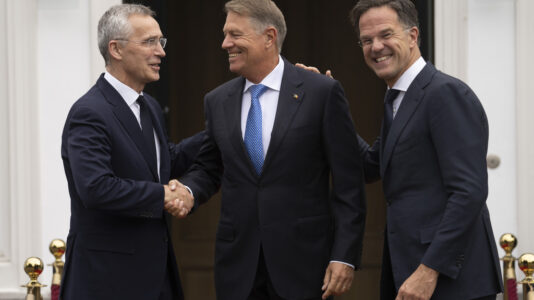The German federal government’s plans to upgrade its ailing military are yet to be realized.
Germany has struggled to reach the 2 percent of GDP defense budget set by NATO as a minimum, while plans to spend €100 billion on force development, which Chancellor Scholz announced shortly after the war in Ukraine broke out, have stalled.
Much of the €100 billion is being spent by the government to buy weapons, most of which will take years to arrive, while reports year after year tell of the continuing deterioration of the working conditions of the German army, shortages of equipment, and an ever-increasing lack of personnel amid failed recruitment drives.
The biggest problem with German force development is that most of it is not funded from the budget. The Scholz cabinet is trying to solve the 2 percent defense expansion in NATO through financing, which could be deemed unconstitutional.
The government has trickily treated the huge sum not as a loan but as an “off-budget special fund.” Germany’s legendary borrowing limit was enshrined in the constitution when the global financial crisis ended in 2008, so governments have needed to find loopholes for additional funding.
This is similar to the famous “rationing fund” (where €200 billion was borrowed to reduce the impact of the energy crisis) and a series of other off-budget pockets that could only be created in the event of a disaster or emergency. The trick was that because the money was put into off-budget funds, on paper it appeared as if it was not being charged to the state.
The Federal Audit Office has warned against such practices. “In the case of special funds, the state borrows in the same way, so they are federal debt even if they are called by a different name,” said its president, Kay Scheller, adding that the German government is making worryingly frequent use of special funds, over which there is a lack of parliamentary oversight.
The €100 billion earmarked for force development (which is also responsible for the government’s 2 percent NATO target) will be used up to the last cent by 2027. Defense Minister Boris Pistorius has quietly started lobbying for funds, but so far he has only run into dead ends.
Scholz’s political platform, the Social Democratic Party (SPD), is now saying the same thing as the Greens, led by Habeck: Germany must relax debt limits if it wants to keep defense spending above the NATO target in the coming years. SDP co-chair Lars Klingbeil said they were committed to reforming the debt limit after ensuring the country’s security.
However, the government’s determination may not be enough: A two-thirds majority in the Bundestag is needed to raise the debt ceiling, and this will most certainly not be forthcoming. The opposition conservative Christian Democrats (CDU) have ruled out voting for such a measure, and the third party in the traffic light coalition, the Free Democratic Party of Finance Minister Christian Lindner, famous for its fiscal austerity, also rejects any tampering with the constitution.






